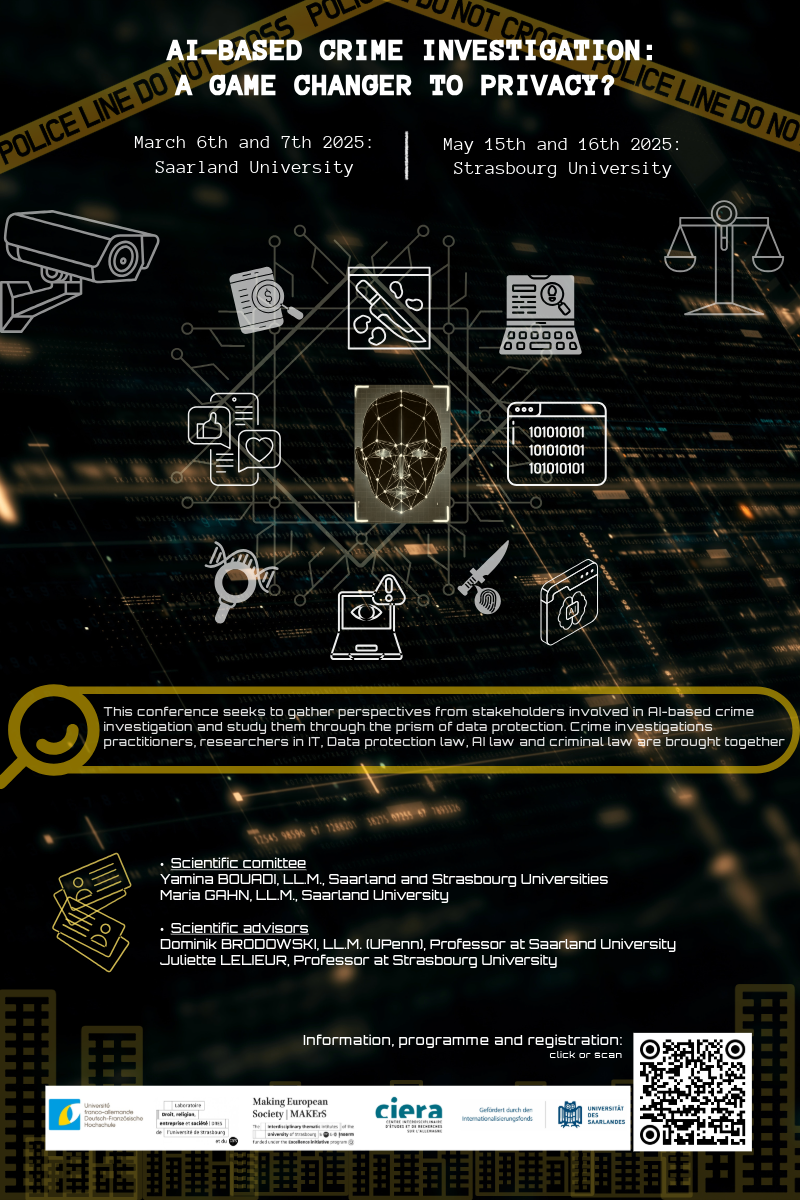AI-Based Crime Investigation: a game changer to privacy? 2025

Programme and Attendance
For more information, please take a look at the current programme.
Attendance is subject to registration and availability: https://dres.unistra.fr/droit-des-affaires/evenements
The conference series is sponsored by the Université franco-allemande/Deutsch-Französiche Hochschule. Part 1 of the conference series was additionally supported by the Internationalization fund of Saarland University.
World Café
At this young researchers conference, we will give twelve students from Saarland University and Strasbourg University the opportunity to take part in the conference free of charge and to discuss their own research idea with the participants in a “World Café”. A publication in the contribution of the conference is offered in case of good results.
Opportunities:
- Participation in the young researchers conference on “AI-based crime investigations: a game changer to privacy?” in Saarbrücken and Strasbourg
- Short presentation (5 minutes) in a “World Café” in small groups followed by a discussion (15 minutes) in the Strasbourg part
- Travel expenses to Strasbourg, accommodation and catering during the conference will be covered by the organising chairs and their sponsors
Participation requirements:
- Law students from the 3rd year of study onwards and all postgraduate programmes from the 1st year of study
- Submission of a suitable conference topic by the deadline of February 1st 2025 using the form on this website (see below)
- Good knowledge of English
If you have any questions, please send an email to: maria.gahn@uni-saarland.de
